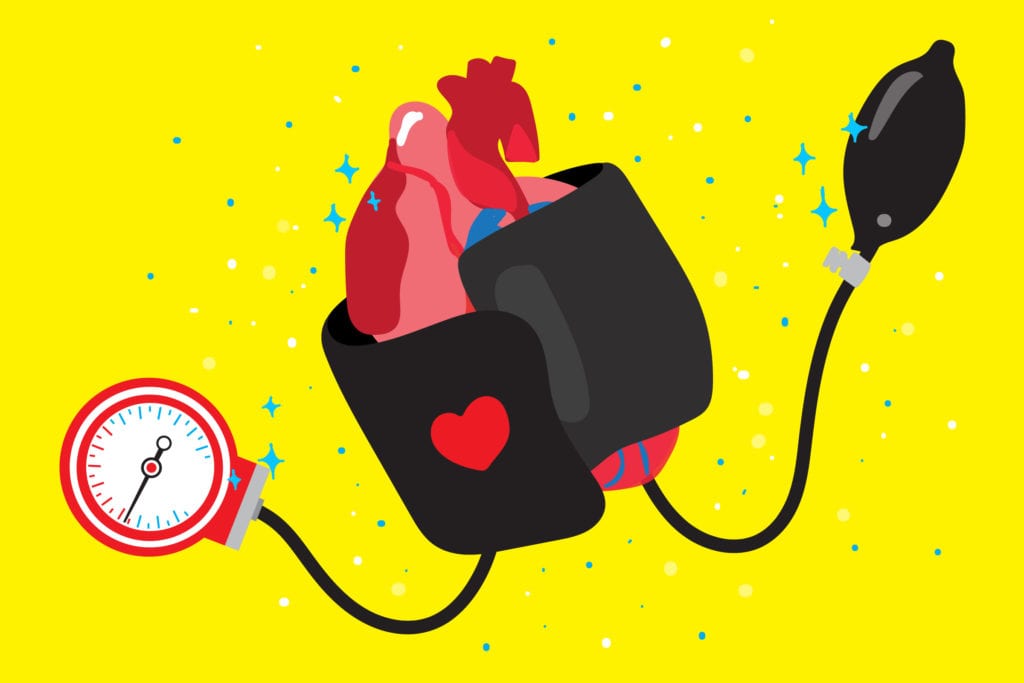

High blood pressure, also known as hypertension, is often called a silent killer because it might not cause any noticeable symptoms, yet it substantially increases the risk of heart attack, stroke, and other dangerous cardiovascular events. And 46 percent of Americans now have it, according to a new report from the American Heart Association (AHA), published in the journal Circulation.
The 46 percent stat refers to the number of people who have hypertension as defined by the most recent (2017) joint guidelines from the AHA and the American College of Cardiology, which say that a blood pressure reading of 130/80 mm Hg or higher should be considered high blood pressure and treated with lifestyle changes and/or medication. Previously, older guidelines had considered a reading 140/90 mm Hg to be the cutoff for having high blood pressure.
The authors of the new AHA report also concluded that an alarming 48 percent of the U.S. now has some type of cardiovascular disease, including hypertension. If you exclude hypertension from this statistic, however, the national cardiovascular disease rate is 9 percent.
Some experts consider hypertension to be a type of cardiovascular disease, while others describe it as a risk factor for it.
Common forms of cardiovascular disease include coronary artery disease (buildup of plaque in the blood vessels leading to the heart), arrhythmia (heart rhythm disorder), cardiomyopathy (weakened heart muscle, which can progress to heart failure), and cerebrovascular disease (compromised blood flow to the brain, which can lead to a stroke).
Even if you take hypertension out of the statistics for full-blown cardiovascular disease, the remaining number of cases is larger than it might appear: 9 percent of the U.S. adult population translates to 24.3 million Americans with coronary artery disease, heart failure, or stroke.
AHA experts warn that hypertension should be taken seriously:”We’re becoming more and more aware of the importance of high blood pressure,” Emelia J. Benjamin, MD, a professor of cardiology at Boston University and chair of the group that wrote the new report, said in a statement. “Levels we used to think were normal we now associate with worse outcomes, and treating them makes a big difference.”





